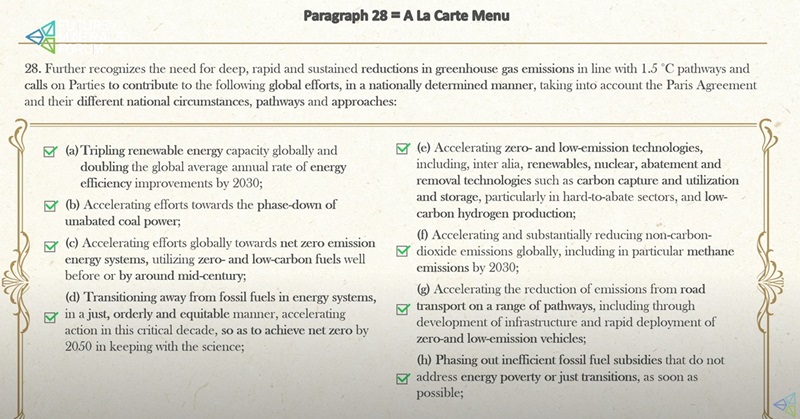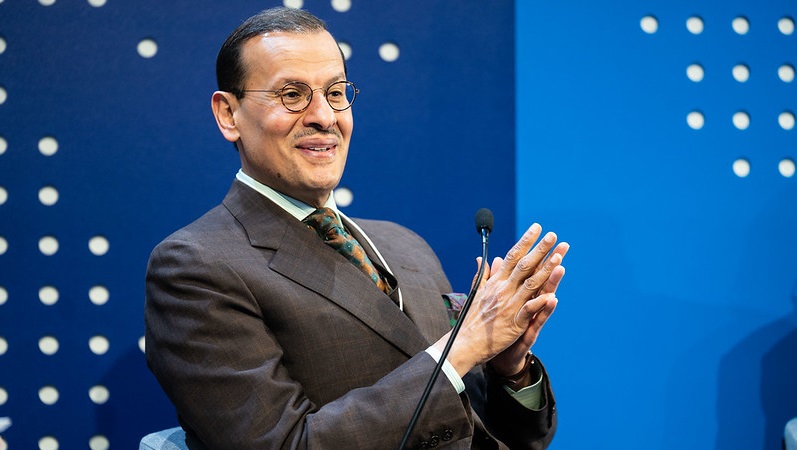Saudi Arabia’s energy minister has claimed that the headline Cop28 agreement to transition away from fossil fuels is just one of several “choices” on an “a la carte menu”.
After two weeks in Dubai, all governments agreed to “call on” each other “to contribute” to eight “global efforts” – one of which was “transitioning away from fossil fuels in energy systems”.
But at a forum in Riyadh, gesturing on stage to an image displaying the relevant text, long-time minister Abdulaziz bin Salman claimed that “all of these eight items you have in front of you are choices – that’s why I call it a la carte”.

A screenshot from Bin Salman’s presentation
To justify this interpretation, he pointed to phrases in the introduction to this section like “nationally determined” and “taking into account the Paris Agreement and their different national circumstances”.
Bin Salman stressed the difference between “transitioning away from” and “phasing out” fossil fuels – a phrase that was in an early draft at Cop28 and a coalition of mainly developed and vulnerable nations had pushed for.
If they were the same, he said, “we could have used the same word interchangeably but there is a difference here which is…there are people that are transitioning because they want to change their energy mix like us and there are those who believe that they should transition away because they don’t want to use fossil fuels”.
Bin Salman’s interpretation is very different from that of many other governments, campaigners and the head of the United Nations climate change division Simon Stiell who called the agreement the “beginning of the end” for the fossil fuel era.
E3G analyst Tom Evans, who followed talks closely, told Climate Home that Bin Salman’s framing was “incredibly misleading”.
“The text is very clear that these are global efforts – that means everyone, including Saudi Arabia, signed up to transitioning away from fossil fuels, it’s not a pick and mix,” he added.
Evans pointed out that an earlier Cop28 draft would have given governments the option to ignore provisions. “That text was strongly rejected as too weak”, he said.
“The only choice a country like Saudi Arabia now has is whether to continue denying the international consensus that the fossil fuel era is coming to an end or instead step into the fold and play its part in the energy transition,” he said.
The Paris Agreement does not contain any measures to make governments do what they agree to in Cop agreements.
Bin Salman attacked other unnamed governments, accusing some of “negotiating through the media” in the first few days of Cop28, adding that Saudi Arabia had been “called names” and was “a victim of misconceived perceptions”.
He questioned why “some of these countries that are desperate to phase out or phase down fossil fuels” don’t freeze their fossil fuel production and detail how they would phase out production.
Only a handful of countries like France and Denmark have committed to ending fossil fuel production.
Rich nations like the US, Canada, Australia, Norway and the UK remain major oil and gas producers and have no plans to stop producing.
The US and Canada plan to increase oil and gas production by 2030, as will Saudi Arabia.
